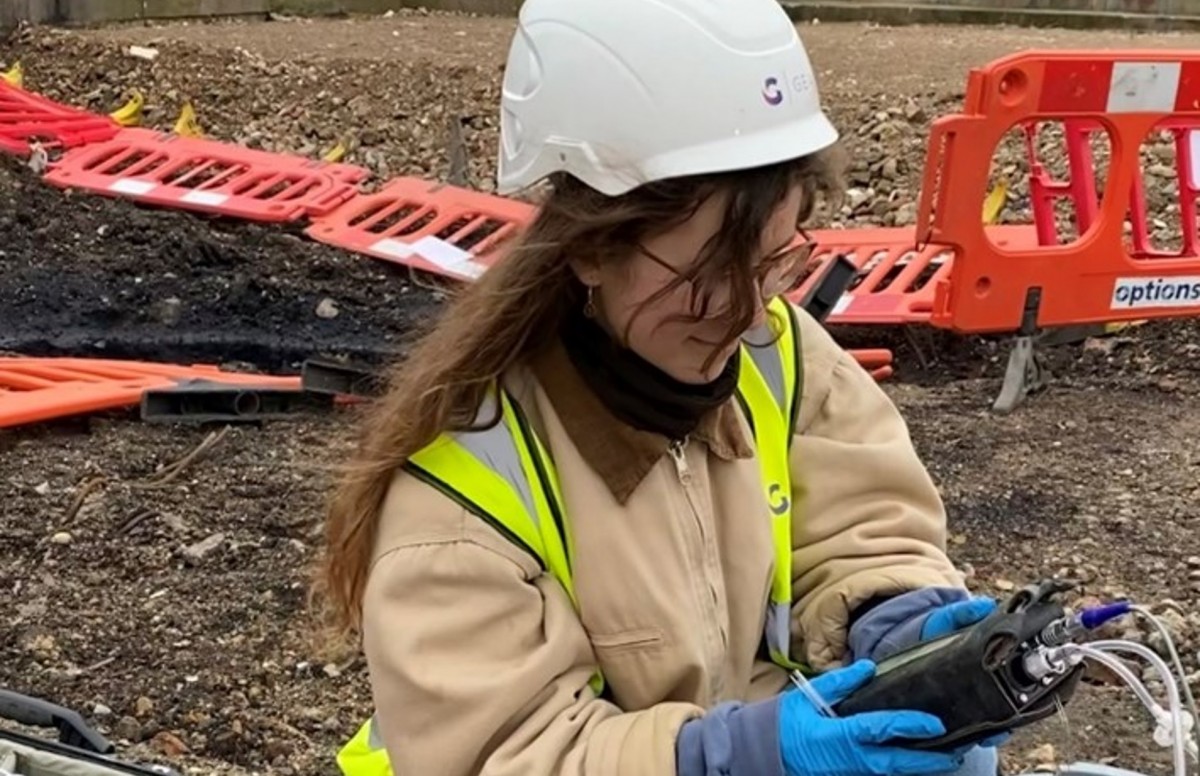The smart Trick of Geotheta That Nobody is Discussing
The smart Trick of Geotheta That Nobody is Discussing
Blog Article
The Geotheta Diaries
Table of ContentsThe Single Strategy To Use For GeothetaOur Geotheta IdeasSome Known Factual Statements About Geotheta What Does Geotheta Do?8 Simple Techniques For Geotheta

They perform site examinations, collect samples, do lab tests, and analyze information to examine the suitability of the ground for building and construction jobs - Consulting Engineer. Based on their findings, geotechnical engineers provide referrals for foundation layout, slope security, maintaining structures, and mitigation of geotechnical threats. They work together with other specialists, such as architects, structural designers, and construction groups, to make sure that geotechnical factors to consider are integrated right into the total job layout and application
By analyzing the habits and buildings of dirt and rock, they can recognize possible geotechnical threats such as landslides, dirt negotiation, or slope instability. Their know-how helps avoid failures or accidents that could jeopardize lives and property. Below are some thorough tasks and obligations of a geotechnical engineer: Website Investigation: Geotechnical engineers conduct site examinations to gather data on subsurface problems.
They analyze the information to understand the residential properties and actions of the dirt and rock, including their stamina, permeability, compaction qualities, and groundwater conditions. Geotechnical Analysis and Design: Geotechnical designers examine the data gathered during website examinations to analyze the security and suitability of the site for construction projects. They perform geotechnical calculations and modeling to evaluate variables such as bearing ability, negotiation, slope security, side earth stress, and groundwater circulation.
Geotheta - Truths
Structure Design: Geotechnical engineers play a vital role in creating foundations that can safely sustain the designated framework. They analyze the soil problems and load needs to figure out the proper foundation kind, such as superficial structures (e.g., footings), deep foundations (e.g (https://www.awwwards.com/geotheta/)., heaps), or specialized methods like soil improvement. They take into consideration aspects such as negotiation limits, birthing ability, and soil-structure interaction to develop optimal foundation layouts
They assess building and construction strategies, display site tasks, and perform field evaluations to validate that the layout recommendations are adhered to. If unanticipated geotechnical problems develop, they analyze the circumstance and offer referrals for remediation or changes to the design. Threat Evaluation and Mitigation: Geotechnical engineers assess geotechnical threats and risks linked with the project website, such as landslides, liquefaction, or soil erosion.

Collaboration and Interaction: Geotechnical designers function closely with various other professionals entailed in a job, such as engineers, structural designers, and building and construction teams. Effective interaction and collaboration are vital to incorporate geotechnical considerations right into the overall job design and construction process. Geotechnical designers offer technological proficiency, response queries, and make certain that geotechnical requirements are satisfied.
Geotheta Things To Know Before You Get This
Right here are some sorts of geotechnical designers: Foundation Engineer: Foundation engineers concentrate on developing and analyzing foundations for frameworks. They assess the soil conditions, lots needs, and website qualities to identify the most proper structure type and layout, such as superficial foundations, deep foundations, or specialized techniques like pile structures.
They examine the aspects affecting incline security, such as soil homes, groundwater problems, and slope geometry, and establish strategies to avoid slope failures and mitigate threats. Quake Designer: Earthquake engineers specialize in assessing and creating frameworks to endure seismic pressures. They analyze the seismic threat of a website, assess dirt liquefaction capacity, and develop seismic layout criteria to ensure the safety and strength of structures during quakes.
They carry out field screening, collect examples, and assess the accumulated information to characterize the dirt residential properties, geologic formations, and groundwater problems at a site. Geotechnical Instrumentation Designer: Geotechnical instrumentation designers focus on monitoring and gauging the habits of dirt, rock, and structures. They mount and preserve instrumentation systems that keep track of factors such as dirt negotiation, groundwater levels, incline motions, and structural variations to analyze performance and give early warnings of potential issues.
Geotheta Things To Know Before You Buy
They perform tests such as triaxial examinations, combination tests, direct shear tests, and permeability tests to gather data for geotechnical analysis and style. Geosynthetics Engineer: Geosynthetics engineers concentrate on the layout and application of geosynthetic products, such as geotextiles, geogrids, and geomembranes. They use these products to boost dirt security, enhance inclines, provide water drainage services, and control erosion.
They often tend to be investigative people, which indicates they're intellectual, introspective, and inquisitive. They wonder, methodical, rational, logical, and sensible. Several of them are additionally social, suggesting they're kind, charitable, participating, client, caring, useful, compassionate, sensible, and friendly. Does this noise like you? Take our totally free profession examination to discover if geotechnical engineer is among your top career matches.
In the workplace setting, geotechnical designers utilize specialized software devices to carry out computations, develop styles, and analyze information. They prepare records, testimonial project specifications, connect with clients and staff member, and coordinate task activities. The workplace setup provides a conducive environment for study, analysis, and cooperation with other professionals associated with the job.
Unknown Facts About Geotheta
They frequently check out task sites to perform website examinations, examine geotechnical conditions, and gather data for evaluation. These check outs include traveling to different locations, occasionally in remote or tough terrains. Geotechnical engineers might carry out dirt tasting, conduct tests, and display building tasks to guarantee that the geotechnical aspects of the project are being carried out appropriately.
Geotechnical designers additionally function in specialized geotechnical research laboratories. Geotechnical lab designers work extensively in these settings, taking care of testing tools, operating instruments, and tape-recording data.
Report this page